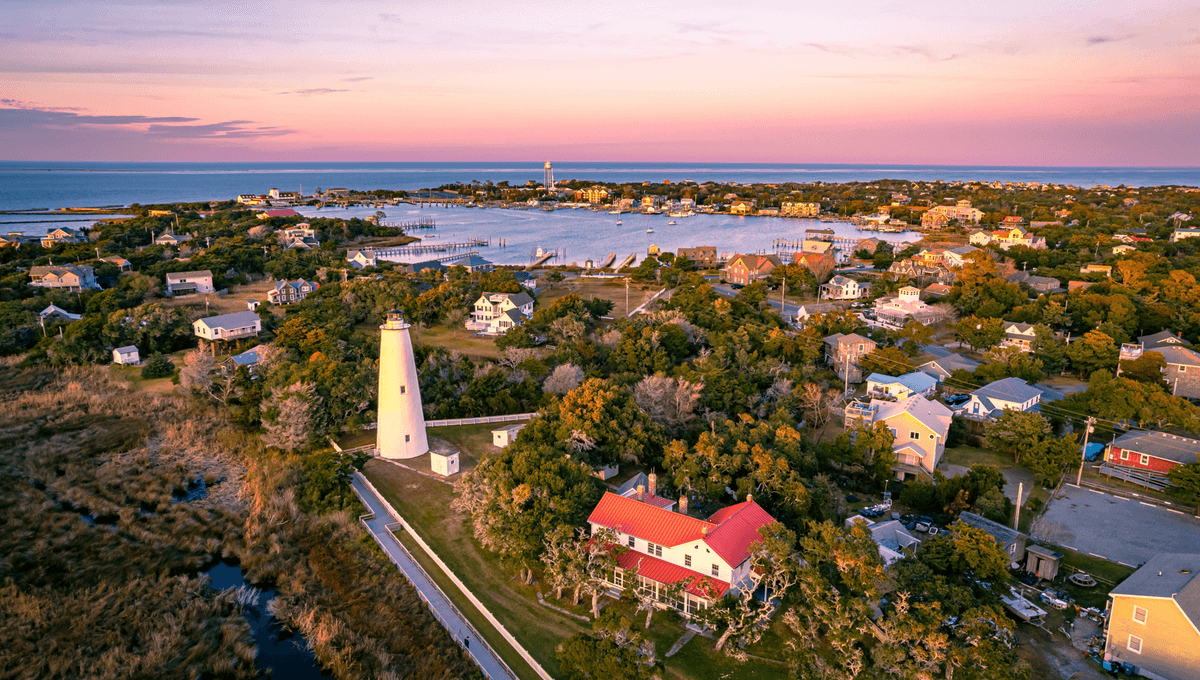
Island-dwellers in North Carolina’s Outer Banks speak a dialect that’s like a linguistic time capsule. To the common ear, it might sound like a charming mash-up of West Country English, Scottish, and Irish, with perhaps a sprinkling of “pirate accent” – but that’s not surprising given its history.
It’s known as “High Tider,” or (to say it with the appropriate inflection and lilt) “Hoi Toider”, but locals tend to just call it “the brogue.” Hints of the dialect can be heard across many of the islands in the coastal Outer Banks region of North Carolina, but it’s most commonly associated with Ocracoke Island.
On the local town’s website, it proudly states: “Visitors often mistake the accent as British or Australian, but with origins dating back to the 1600s, Ocracoke Brogue is about as American as it gets. A small number of Ocracoke Island residents still speak in the brogue.”
Emerging in the 17th century during early European colonization, it preserves age-old twangs and expressions once common among English, Scottish, and Irish settlers over 400 years ago. Thanks to the isolation provided by the sea, the settlers’ regional tongue was somewhat preserved and resisted many of the forces that shaped other American accents.
If you think it sounds a bit like a stereotypical pirate, you’re not hearing things. The classic “Arrr matey” accent from pirate movies and cartoons is deeply rooted in the West Country accent of southwestern England, the very same region where many of the North Carolinian early settlers came from around 400 years ago. So while it might sound theatrical today, there’s a genuine historical link between pirates and the seafaring people who shaped this coastal dialect.
“Dingbatter” is perhaps the best-known example of Hoi Toider vocabulary (and probably the most likely you’ll hear as an outsider). It’s a semi-insulting way to describe a naive person who’s not from the region. Conversely, an “O’cocker” is an Ocracokan native.
There’s also “mommuck,” meaning “to annoy” or bother someone. There’s also “meehonkey,” which is essentially a game of hide-and-seek played by kids.
Words also have distinct vowel pronunciations. As the local news outlet Free Island Press explains, the word “side” is said like “soid”, while “sound” is like “saind” and “fire” is like “fair.”
One of the most approachable deep dives into the Hoi Toider dialect comes from sociolinguist Walt Wolfram. In his 1997 book Hoi Toide on the Outer Banks: The Story of the Ocracoke Brogue, he explores the roots and rhythms of this mother tongue. After decades of research across North Carolina and beyond, Wolfram sees a troubling trend. Like many regional accents, dialects, and languages around the world, Hoi Toider is under threat.
Linguistic diversity is dying at an alarming rate. UNESCO warns that 40 percent of the world’s estimated 7,000 languages are endangered, and one disappears every two weeks on average. That doesn’t even account for the quieter loss of local accents and dialects, which often fade away without much fanfare.
There are efforts to keep Hoi Toider alive, but Wolfram isn’t overly optimistic. Younger generations are moving to cities to find work, marrying outsiders, and blending into mainstream culture. Despite the community’s efforts to protect their unique heritage, he fears the dialect could fade out within the next few generations.
“What’s happening is that some of these small dialects that thrive on isolation are dying because isolation is a thing of the past. They still pick up terms and vocabulary, but when a kid from the island retains a strong dialect, that was the norm and now it’s an exception,” Dr Wolfram told BBC Earth.
“Within one to two generations, it’ll be gone,” he added. “It’s dying out and we can’t stop that.”
Source Link: This American Dialect Is Like A Time Capsule Of 17th-Century Britain And Ireland